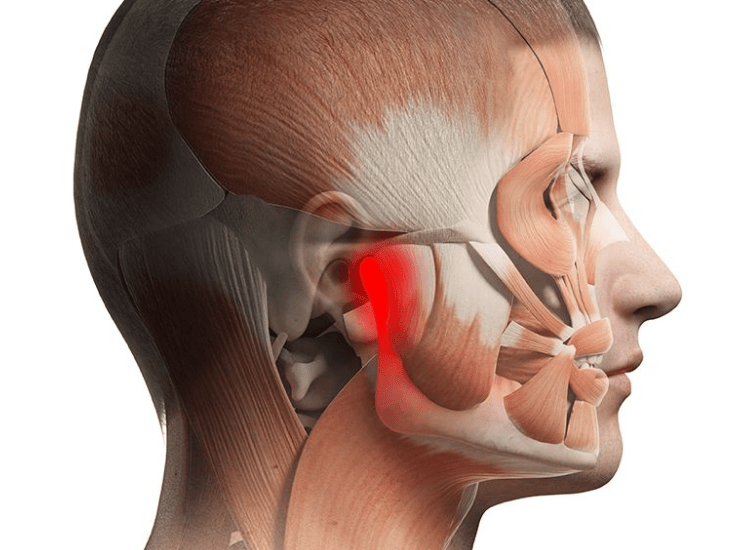Lockjaw, medically known as trismus, is a condition that restricts the normal opening of the mouth due to muscle stiffness, joint issues, or underlying medical conditions. It can range from mild discomfort to severe restriction, making it difficult to eat, speak, or maintain oral hygiene. While many people experience temporary jaw tightness from stress or minor injury, persistent lockjaw requires medical evaluation and appropriate care.
The Importance of Seeking Lock Jaw Treatment
When individuals experience limited jaw movement, they often underestimate the seriousness of the issue. However, professional lock jaw treatment is crucial because the condition can be a symptom of various health concerns, including temporomandibular joint (TMJ) disorders, dental infections, or even neurological problems. Effective treatment ensures that not only the immediate stiffness is relieved but also that the underlying cause is addressed, preventing recurrence.
Without proper care, lockjaw can lead to complications such as chronic pain, nutritional challenges from difficulty eating, or worsening jaw joint damage. Early diagnosis and treatment are therefore essential for long-term relief and overall well-being.
Common Causes of Lockjaw
Understanding what leads to lockjaw is vital for both prevention and effective treatment. Some of the most common causes include:
- Temporomandibular Joint Disorders (TMD): Dysfunction in the joint connecting the jaw to the skull often results in stiffness and restricted movement.
- Muscle Spasms: Overuse, injury, or tension in the jaw muscles can cause painful contractions.
- Dental Infections: Abscesses or severe gum infections sometimes spread to jaw muscles, limiting movement.
- Trauma or Injury: Physical impact to the jaw or face may cause swelling or structural damage leading to lockjaw.
- Tetanus Infection: Though rare due to vaccination, tetanus can cause severe muscle stiffness, including lockjaw.
- Stress and Anxiety: Emotional tension often manifests in physical ways, including jaw clenching and tightness.
Identifying the cause plays a major role in choosing the most effective treatment path.
Recognizing Symptoms of Lockjaw
The primary symptom of lockjaw is restricted jaw movement, but other signs often accompany it, such as:
- Pain or tenderness in the jaw muscles
- Headaches or earaches
- Clicking or popping sounds in the jaw joint
- Swelling in the face or jaw
- Difficulty chewing, swallowing, or speaking
- In severe cases, complete inability to open the mouth
Because these symptoms overlap with other conditions, consulting a healthcare professional ensures accurate diagnosis.
Diagnostic Approaches
Doctors and dental specialists use several methods to determine the cause of lockjaw. A typical evaluation may include:
- Medical History Review: Identifying potential risk factors such as stress, prior injuries, or infections.
- Physical Examination: Checking jaw movement, muscle tenderness, and alignment.
- Imaging Tests: X-rays, CT scans, or MRI to evaluate joint and bone structures.
- Laboratory Tests: In suspected cases of infection, blood tests may be recommended.
These diagnostic steps help specialists tailor treatment to the individual’s specific condition.
Lockjaw Treatment Options
Treatment for lockjaw varies depending on the underlying cause. Specialists often begin with conservative approaches before moving to more advanced options.
Non-Invasive Treatments
- Medications: Anti-inflammatory drugs, muscle relaxants, or pain relievers can reduce discomfort and inflammation.
- Physical Therapy: Jaw exercises and stretches help improve mobility and reduce stiffness.
- Heat or Cold Therapy: Alternating warm compresses and ice packs may ease muscle tension and swelling.
- Stress Management: Relaxation exercises, breathing techniques, or counseling can reduce jaw clenching linked to stress.
Dental and Medical Interventions
- Oral Appliances: Custom-made splints or mouthguards prevent teeth grinding and relieve jaw pressure.
- Dental Procedures: Addressing infections, impacted teeth, or bite misalignment to restore normal function.
- Injections: Corticosteroid or anesthetic injections may reduce inflammation and pain in severe cases.
Surgical Options
Surgery is generally a last resort when conservative treatments are unsuccessful. Options may include correcting joint alignment, repairing damage, or removing scar tissue interfering with movement.
Importance of Early Intervention
Prompt treatment not only alleviates current discomfort but also prevents long-term complications. Persistent lockjaw without treatment can lead to permanent joint damage or chronic pain. Seeking medical help as soon as symptoms appear ensures quicker recovery and reduces the likelihood of worsening the condition.
Psychological Impact of Lockjaw
Lockjaw is not only physically uncomfortable but also emotionally taxing. Individuals often experience frustration, stress, and anxiety due to pain and limited jaw function. Over time, this can lead to sleep disturbances or lowered confidence in social interactions. Addressing the psychological impact is an important part of holistic treatment, and many specialists recommend combining physical therapy with stress-relief practices.
Self-Care Tips for Managing Lockjaw
Patients can also adopt at-home strategies to support their recovery:
- Practice gentle jaw stretches recommended by a healthcare professional.
- Avoid hard, chewy, or sticky foods that strain the jaw.
- Use warm compresses to relax muscles before performing exercises.
- Maintain good posture to reduce unnecessary strain on the jaw and neck.
- Get sufficient rest and manage stress effectively to prevent clenching.
These practices complement medical treatment and promote faster healing.
Conclusion
Lockjaw, though sometimes overlooked, can significantly disrupt daily life if not properly treated. Effective lock jaw treatment involves addressing both the symptoms and the underlying causes, whether they stem from joint issues, infections, muscle spasms, or stress. With timely diagnosis, professional care, and supportive self-care strategies, individuals can restore normal jaw function, reduce pain, and prevent future complications. Prioritizing early intervention is key to long-term relief and overall well-being.




